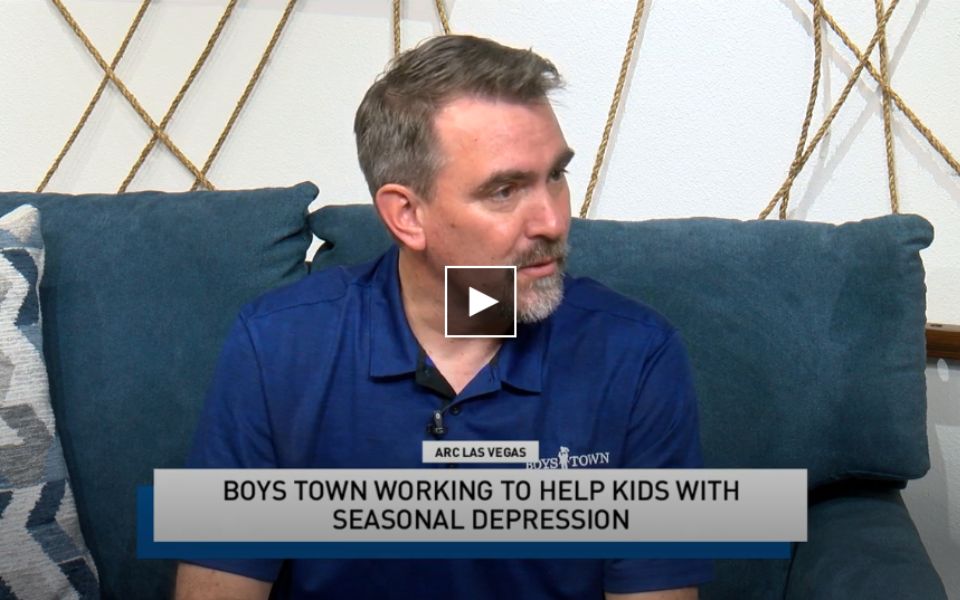Boys Town Nevada Executive Director, John Etzell, joins 3News to discuss Seasonal Affective Disorder.
Check out the interview at news3lv.
With shorter days and colder weather, November often brings an increase in Seasonal Affective Disorder (SAD), a form of depression that can affect anyone—including children and teens. Boys Town, a leader in behavioral health, offers insights into recognizing and addressing the symptoms of SAD in young people, along with strategies to help parents support their children during these challenging months.
What is Seasonal Affective Disorder (SAD)?
SAD is a type of depression that typically occurs in the winter months, with symptoms that can persist into spring. While the exact cause is unknown, there are a few factors that may increase a child’s risk of developing SAD:
- Gender: SAD is diagnosed more frequently in females.
- Age: Younger individuals are at a higher risk of experiencing SAD.
- Biological Factors: Reduced sunlight in winter can lead to lower serotonin and melatonin levels, affecting mood, sleep, and overall mental health.
Children and teens who experience SAD may feel unusually moody, fatigued, or unmotivated. With the growing awareness of mental health in youth, Boys Town’s behavioral health experts are prepared to offer guidance on how to recognize and manage these symptoms.
Supporting Children with SAD: Expert Tips from Boys Town
- Light Therapy: A proven treatment for SAD, light therapy can help regulate serotonin and melatonin levels. Parents can easily obtain a light box for their child and begin with 10-minute sessions, gradually increasing to 45 minutes daily.
- Healthy Habits: Encouraging regular physical activity and healthy eating can combat the effects of SAD. Even in colder weather, getting outside for at least 20 minutes a day helps children absorb natural light and improve their mood.
- Open Communication: Fostering open conversations about emotions helps children recognize patterns in their moods. Knowing they have a supportive and judgment-free space to talk can reduce feelings of isolation and hopelessness.
- Professional Help: If a child exhibits signs of severe depression—such as changes in sleep, appetite, or thoughts of hopelessness—seeking professional help is essential. Boys Town offers resources for parents, including the Boys Town National Hotline, which provides guidance and support.
Boys Town behavioral health professionals, can provide more detailed information on SAD, treatment options, and strategies for parents to help their children cope with seasonal depression.
For additional resources, visit www.boystown.org or contact the Boys Town National Hotline at 1-800-448-3000.
Check out the interview at news3lv.
